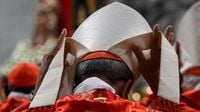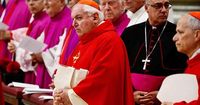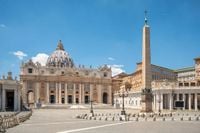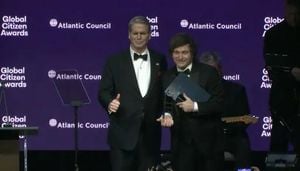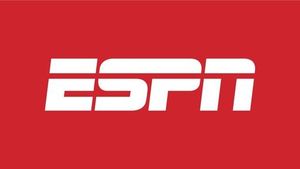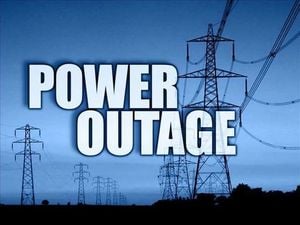The Vatican is currently witnessing the second day of the conclave aimed at selecting a successor to Pope Francis, who passed away on April 21, 2025. The conclave commenced on Wednesday, May 7, 2025, at 16:30, and it has drawn a record number of 133 cardinal electors, including four from Poland: Konrad Krajewski, Grzegorz Ryś, Stanisław Ryłko, and Kazimierz Nycz.
As the cardinals gather in the Sistine Chapel, the world watches closely, anticipating the outcome of their deliberations. According to the established schedule, there are four voting sessions planned for today: two in the morning and two in the afternoon. If no pope is elected during the morning votes, black smoke will be seen around 12:30, signaling that no consensus has been reached. The first afternoon vote is set to begin at 16:30, and if a new pope is elected, white smoke could emerge around 17:30. Should a second vote be necessary, the result will be announced around 19:30.
The process of electing a new pope is steeped in tradition and solemnity. The cardinal electors are isolated from the outside world and conduct a maximum of four votes each day. A candidate must secure a two-thirds majority, which translates to at least 89 votes among the 133 electors. The shortest conclave on record occurred in 1503, lasting only a few hours, while the longest took three years in the 13th century after the death of Pope Clement V.
Among the candidates being discussed as potential successors to Pope Francis are several prominent figures. Cardinal Matteo Zuppi of Italy, the Archbishop of Bologna and known for his efforts in peace and social justice, is often cited as a favorite. Another strong contender is Cardinal Pietro Parolin, who has served as the Secretary of State under Pope Francis and is seen as a stabilizing force. Other notable candidates include Cardinal Luis Antonio Tagle from the Philippines, Cardinal Peter Turkson from Ghana, Cardinal Robert Sarah from Guinea, and Cardinal Pierbattista Pizzaballa, the Latin Patriarch of Jerusalem.
Expert opinions suggest that the candidates associated with Pope Francis's reformist agenda have significant chances of continuing his legacy. Historian Tomasz Rowiński noted, "I believe the candidates from the pope's team still have considerable chances, such as Cardinal Pietro Parolin or one of the leaders of the Sant’Egidio Community, Cardinal Matteo Zuppi." These candidates are viewed as capable of maintaining the current pope's direction without repeating his most controversial decisions.
The current conclave is particularly significant as the majority of the electors were appointed by Pope Francis himself. This dynamic may influence the choice of a new pope who aligns with the outgoing pontiff's vision of a more open church, interfaith dialogue, and decentralized power structures. The election will have profound implications not only for the Catholic Church but also for international politics and pressing social issues like climate change, migration, poverty, and war.
As anticipation builds, the public awaits the iconic moment when white smoke signals the election of a new pope, traditionally followed by the announcement of "Habemus Papam" from the balcony of St. Peter's Basilica. If the conclave proceeds smoothly, a new pope may be elected between May 7 and May 10, 2025, depending on the number of votes required and the consensus among the cardinals.
In the meantime, the atmosphere in the Vatican is charged with both hope and uncertainty. The deep divisions among the cardinal electors reflect varied visions for the future of the church. Some are calling for a continuation of Pope Francis's reforms, while others advocate for a return to more traditional values. As the conclave unfolds, it is clear that the new pope will face the challenge of uniting these divergent perspectives while addressing the pressing issues facing the global community.
As the cardinals prepare for the day's voting, the world is watching closely, with many gathering in St. Peter's Square to witness the outcome. The significance of this conclave cannot be overstated; it represents not just a change in leadership but a pivotal moment for the Catholic Church at a time of great social and political upheaval.
With the clock ticking and the votes being cast, the anticipation continues to build. Will the white smoke rise today, signaling a new beginning for the Catholic Church? Or will the black smoke prevail, prolonging the suspense and the search for a new spiritual leader?
